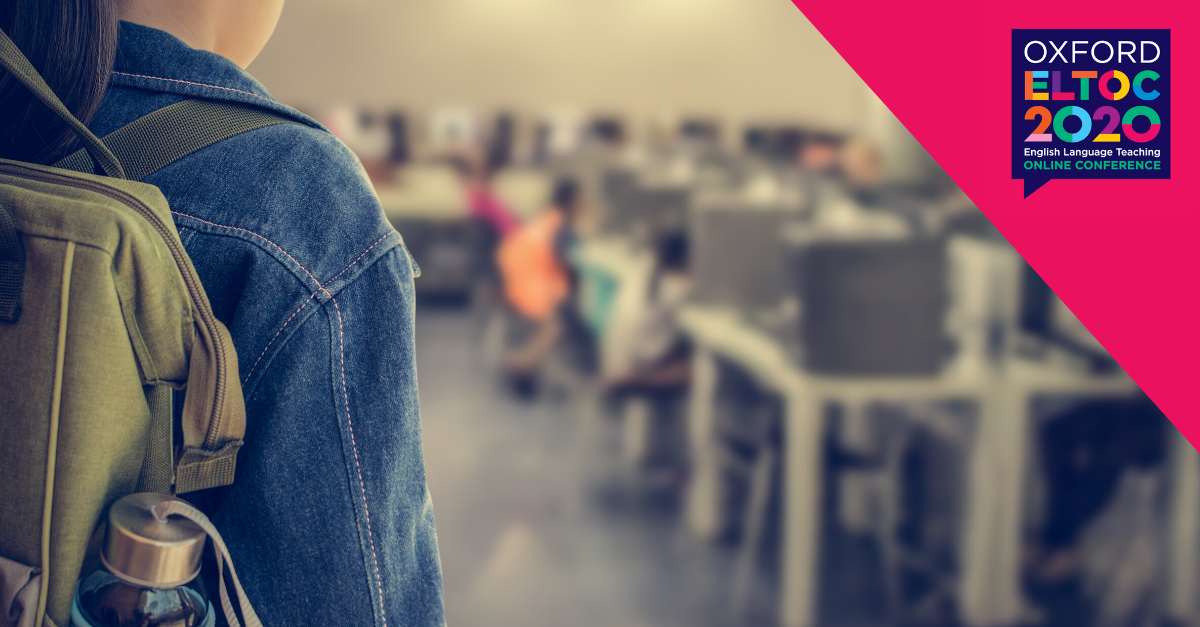
You’ve probably heard of 21st-century skills, also known as ‘global skills’. These are the skills, competencies and attitudes considered important in our increasingly globalised world. As educators, we are increasingly expected to help our students develop them, whatever subject we may teach. Global skills cover several areas – for example, communication and collaboration, creativity and critical thinking, intercultural competence and citizenship, emotional self-regulation and well-being – and, of course, digital literacies.
Global skills are clearly interconnected, and digital literacies can be seen as a thread that runs through all of them.
Defining digital literacies
What exactly are digital literacies? You’ll notice that I use the term ‘literacies’ in the plural, rather than ‘literacy’ in the singular, although you will come across both terms. This is in keeping with current theoretical views of literacies as a complex plural concept, rather than a single skill or ‘thing’ to be learned (e.g. Lankshear and Knobel, 2011).
If you google the term digital literacies, and you will find many possible definitions. Many define digital literacies as finding and analysing information online, or of knowing how to use computers; others define digital literacies in terms of employability. Although these are all important areas within digital literacies, we prefer a broader definition, as follows:
Digital literacies (are) the individual and social skills needed to effectively interpret, manage, share and create meaning in the growing range of digital communication channels.
Dudeney, Hockly & Pegrum, 2013:2
This view of digital literacies includes the ability to not only use hardware and software safely and appropriately (‘computer’ or ‘IT’ skills), and the ability to find, share and create information (‘information literacy’), but also the ability to deploy a range of social and communication skills in using technologies to create meaning and to communicate with others in socially and contextually-appropriate ways. This definition covers not just skills and knowledge, but also attitudes and social abilities; it conceptualises digital literacies as not just a means to an end but as an integral part of living and communicating in a digitally globalised world.
Digital literacies and English language teaching
Definitions are all very well, but what do digital literacies mean for the English language teacher? Surely our job is to teach language, rather than digital skills? The answer is that it is relatively easy to combine a focus on the English language with a focus on digital literacies, within a communicative language teaching approach. We can divide digital literacies into several key areas or domains (communication, information, collaboration, and redesign), and within that, identify more specific digital literacies (Dudeney, Hockly & Pegrum 2018). For example, we can talk about data literacy, mobile literacy, information literacy, and many more. Once we’ve broken down the concept of digital literacies into smaller and more manageable subskills (or literacies), we can then choose to focus on some of them in the English language classroom, alongside work on the language itself. Clearly, we want to focus on those digital literacies that are of the most relevance to our students and our teaching context.
Activity idea: memes
Here is one simple example of an activity that can develop our students’ digital literacies in the area of redesign: working with memes in the English language classroom. An Internet meme is an image, text or video that is shared via the Internet, added to or changed by users, and then shared again. Understanding and creating memes is an example of remix literacy. Remix literacy is the ability to re-purpose or change already-made digital content to create something new. In class, show your learners a few examples of recent or famous image memes and ask them to describe (or show) other image memes that they know about. Put your learners into pairs, and assign each pair a meme. Ask your learners to visit the site to research their assigned meme, and to also create their own version of the meme. Your learners can create their meme on paper, or if they have access to Internet-connected laptops/mobile devices, they can use a meme generator site to create their meme electronically. Regroup your learners and ask them to share what they found out about their meme, and to share their version of it. To round up the activity, ask your learners to vote on which meme they thought was the most interesting, original, political, unusual or funny. The activity provides learners with reading, speaking and writing practice, all within a focus on remix literacy.
Nicky spoke further on this topic at ELTOC 2020. Stay tuned to our Facebook and Twitter pages for more information about upcoming professional development events from Oxford University Press.
You can catch up on past Professional Development events using our webinar library.
These resources are available via the Oxford Teacher’s Club.
Not a member? Registering is quick and easy to do, and it gives you access to a wealth of teaching resources.
Nicky Hockly is the Director of Pedagogy of The Consultants-E, an award-winning online training and development organisation. She has worked in the field of English Language Teaching since 1987, is an international plenary speaker, and gives workshops and training courses for teachers all over the world. Nicky writes regular columns on technology for teachers in ETP (English Teaching Professional) magazine, and in the ELTJ (English Language Teaching Journal).
References
- Dudeney, G., Hockly, N. & Pegrum, M. (2013). Digital Literacies. London: Routledge.
- Dudeney, G., Hockly, N. & Pegrum, M. (2018). Digital Literacies Revisited. The European Journal of Applied Linguistics and TEFL, 7, 2, 3-24.
- Lankshear, C. & Knobel, M. (2011). Literacies: Social, cultural and historical perspectives. New York: Peter Lang.


I am unable to access for the registration please help
Hi Rashid, if you are struggling to access the link provided please try this alternative: https://elt.oup.com/events ^Chesca